Your cart is currently empty!
Month: July 2024
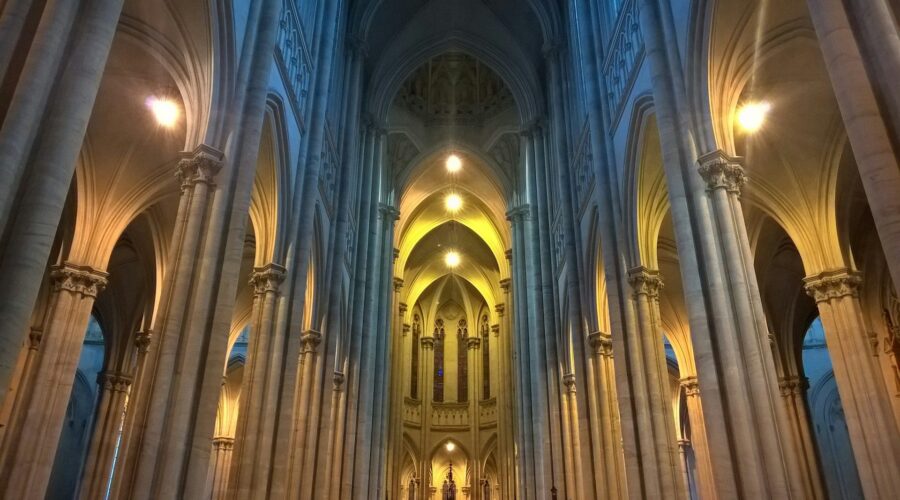
Elim Church: A Comprehensive Guide to Its History, Beliefs, and Structure
Introduction
Elim Church is a Pentecostal denomination with a rich history and a global reach. Founded in England in 1915, the church has grown to over 4,000 churches in more than 60 countries. Elim is known for its emphasis on the baptism of the Holy Spirit, its charismatic worship style, and its commitment to social justice.
History
Elim Church was founded by George Jeffreys, a Welsh evangelist who had experienced a dramatic conversion to Christianity. Jeffreys began preaching in a small chapel in Elim, South Wales, and soon attracted a large following. In 1915, Jeffreys and his followers established the Elim Pentecostal Church, which quickly spread throughout the United Kingdom.
In the 1920s and 1930s, Elim missionaries were sent to Africa, Asia, and the Americas. The church grew rapidly in these regions, and by the end of the 20th century, Elim had become a global denomination.
Today, Elim Church is led by a General Superintendent, who is elected by the church’s General Assembly. The General Assembly is the highest governing body of the church, and it meets annually to discuss and approve church policies.
Beliefs
Elim Church is a Pentecostal denomination, and it shares many of the beliefs common to other Pentecostal churches. These beliefs include:
- The Bible is the inspired Word of God and the only infallible rule of faith and practice.
- Jesus Christ is the Son of God, who died on the cross to atone for the sins of humanity.
- The Holy Spirit is the third person of the Trinity, who indwells believers and empowers them to live a Christian life.
- Baptism in the Holy Spirit is a distinct experience from salvation, and it is accompanied by the gift of speaking in tongues.
- The Church is the body of Christ, and it is called to proclaim the gospel of Jesus Christ to the world.
Structure
Elim Church is a hierarchical denomination, with a General Superintendent at the head. The General Superintendent is responsible for overseeing the church’s operations and for appointing ministers to serve in its churches.
Below the General Superintendent are the District Superintendents, who oversee the church’s work in their respective districts. District Superintendents are appointed by the General Superintendent, and they serve for a term of four years.
Local churches are led by pastors, who are appointed by the District Superintendents. Pastors are responsible for the day-to-day operations of their churches, and they serve for a term of three years.
Worship
Elim Church is known for its charismatic worship style. Worship services typically include singing, dancing, and speaking in tongues. Elim churches also place a strong emphasis on the preaching of the Word of God.
Social Justice
Elim Church is committed to social justice. The church has a long history of working to address issues such as poverty, homelessness, and human trafficking. Elim also supports a number of international aid organizations.
Conclusion
Elim Church is a Pentecostal denomination with a rich history, a strong set of beliefs, and a commitment to social justice. The church is active in more than 60 countries, and it continues to grow rapidly. Elim is a vibrant and dynamic church that is making a difference in the world.
Frequently Asked Questions
- Who is the General Superintendent of Elim Church?
The current General Superintendent of Elim Church is John Glass. - Where is Elim Church headquartered?
Elim Church is headquartered in Malvern, Worcestershire, England. - How many members does Elim Church have?
Elim Church has over 100,000 members worldwide. - What is the official website of Elim Church?
The official website of Elim Church is https://www.elim.org.uk/.
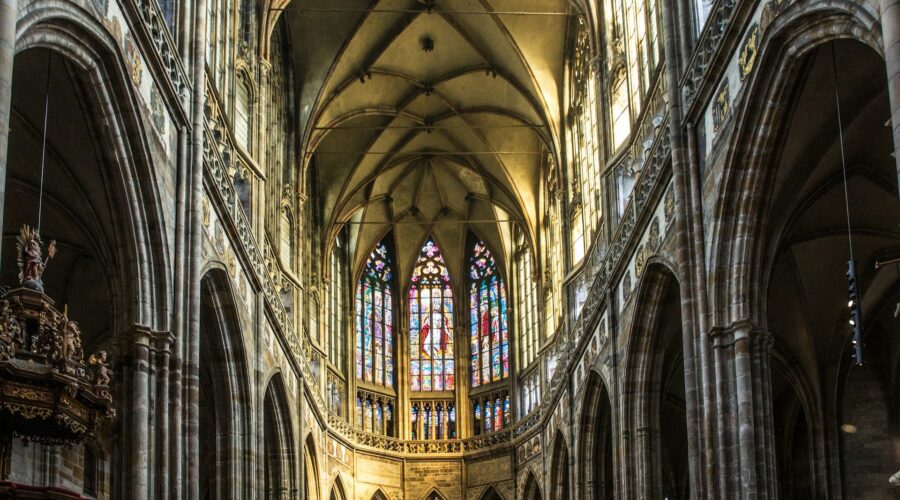
Unlocking the Heart of Koinonia: A Comprehensive Guide
Introduction
Koinonia, a Greek word meaning “fellowship” or “communion,” serves as a cornerstone of Christian theology and practice. Within the church, koinonia encompasses a profound spiritual bond shared among believers, characterized by unity, love, and mutual support.
The Biblical Foundation of Koinonia
Acts 2:42
“They devoted themselves to the apostles’ teaching and to fellowship, to the breaking of bread and to prayer.”
This verse highlights the central role of koinonia in the early Christian community. It involved regular gatherings for shared teachings, worship, and meals, fostering a deep sense of unity and belonging.
1 John 1:3
“That which we have seen and heard we proclaim also to you, so that you too may have fellowship with us; and indeed our fellowship is with the Father and with his Son Jesus Christ.”
John emphasizes the connection between koinonia with fellow believers and fellowship with God. Through communion with one another, we share in the divine presence and experience the love of the Father and Son.
The Elements of Koinonia
Unity
Koinonia requires a profound sense of unity among believers. It transcends differences in personality, background, or perspective. Within the fellowship of the church, all members are valued and respected as part of the body of Christ.
Love
Love is the cornerstone of koinonia. It manifests as unconditional care, acceptance, and compassion towards one another. This love is not limited to fellow members but extends to all people, mirroring the love of God.
Mutual Support
Koinonia involves a reciprocal exchange of support and encouragement. Believers share their joys, sorrows, burdens, and prayers. They act as a source of strength and comfort during times of need.
The Benefits of Koinonia
Spiritual Growth
Koinonia provides an environment conducive to spiritual growth. Through shared teachings, worship, and prayer, believers deepen their understanding of God and their faith. They are also challenged and encouraged to grow in their love and maturity.
Empowerment
Within the context of koinonia, believers find empowerment for ministry and service. They are equipped and supported to use their gifts and talents for the building up of the church and the extension of God’s kingdom.
Belonging
Koinonia creates a sense of belonging and community. It provides a safe and welcoming environment where individuals feel valued and connected. This sense of belonging fosters a strong sense of identity and purpose.
Fostering Koinonia in the Church
Establish a Culture of Love
Create a church environment where love is tangible and expressed through words, actions, and attitudes. Encourage members to value and respect one another, regardless of their differences.
Prioritize Community Events
Regularly host activities and events that promote fellowship and interaction. This can include potlucks, retreats, service projects, and small group gatherings.
Encourage Service
Foster a culture of service within the church. Encourage members to use their gifts and talents to meet the needs of others, both within the congregation and the wider community.
Promote Spiritual Disciplines
Help members cultivate a life of spiritual disciplines, such as prayer, Bible study, and worship. These practices foster intimacy with God and strengthen the bonds of fellowship.
Cultivate a Welcoming Spirit
Ensure that the church is a welcoming and inclusive environment. Extend hospitality and friendship to new members and visitors. Make an effort to reach out to those who may feel isolated or disconnected.
Conclusion
Koinonia is the heartbeat of the church. It is a gift from God that enriches our lives and empowers us to live out our Christian calling. By fostering koinonia within our faith communities, we experience the transformative power of unity, love, and mutual support and become a beacon of hope and grace in the world.
Remember, koinonia is not merely a concept but a dynamic reality that should permeate every aspect of our church life. As we strive to cultivate this essential element, we participate in the ongoing work of God’s kingdom, building a community where love, belonging, and purpose flourish.
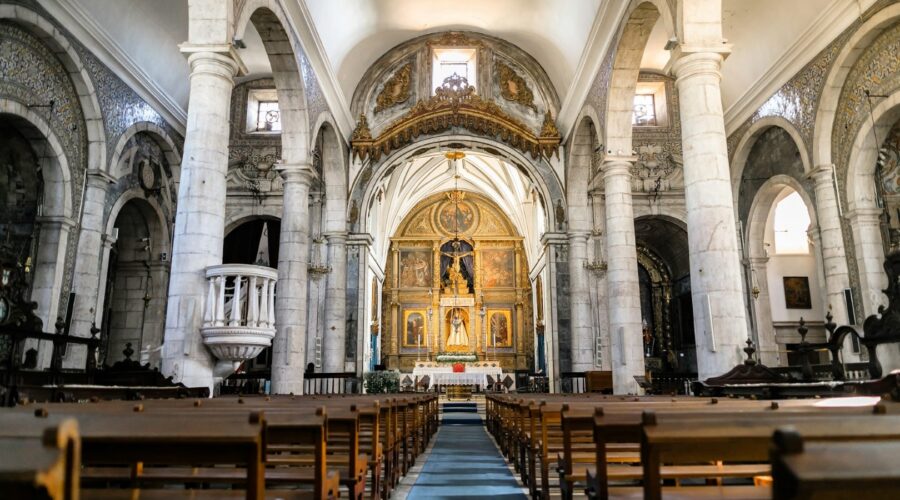
Hope Chapel: A Beacon of Faith and Community
About Hope Chapel
Hope Chapel is a vibrant and welcoming Christian church that has been serving the community for over four decades. Founded in 1982, the church has grown from a small gathering to a thriving congregation of over 5,000 members.
Hope Chapel is known for its dynamic worship services, relevant and engaging Bible teaching, and strong emphasis on missions and community outreach. The church is led by a team of experienced and passionate pastors who are committed to creating a space where everyone feels loved, accepted, and inspired.
Core Values and Beliefs
- Love God
- Love People
- Make Disciples
- Live on Mission
Hope Chapel believes that God is the creator of all things and is worthy of our love, worship, and adoration.
The church emphasizes the importance of loving one another as Jesus loved us. This involves caring for the needs of others, building meaningful relationships, and sharing the love of God.
Hope Chapel is passionate about making disciples of Jesus Christ. This involves reaching out to those who do not know Him, teaching them the Bible, and helping them grow in their faith.
The church believes that every Christian is called to be a missionary. This involves sharing the gospel, serving others, and making a difference in the world.
Church Services and Programs
Worship Services
Hope Chapel holds multiple worship services each weekend at its campus in Hermosa Beach, California. The services feature contemporary music, dynamic preaching, and engaging worship experiences designed to connect people with God.
Small Groups
Small groups are an essential part of the church community. They provide a space for people to connect, grow in their faith, and build relationships.
Children’s and Youth Programs
Hope Chapel offers a variety of programs for children and youth, including Sunday school, youth groups, and camps. These programs are designed to help young people learn about God, develop their faith, and make friends.
Community Involvement and Outreach
Hope Chapel is committed to serving the local community and beyond. The church supports a variety of ministries and outreach programs, including:
- Hope for the Hungry
- Hope for the Homeless
- Hope for the Nations
Provides meals to those in need
Provides housing and support services to homeless individuals
Supports missionaries and churches around the world
How to Get Involved
If you are interested in learning more about Hope Chapel or getting involved in the community, there are several ways to do so:
- Attend a Worship Service
- Join a Small Group
- Volunteer
- Give Financially
Visit Hope Chapel’s website to find service times and locations.
Contact the church office for more information about small groups and how to find one that fits your interests.
Hope Chapel offers a variety of volunteer opportunities, including serving at worship services, working with children and youth, or assisting with community outreach programs.
Your financial support helps Hope Chapel continue to make a difference in the community and around the world.
Conclusion
Hope Chapel is a vibrant and dynamic Christian church that is committed to making a positive impact on the community and the world. Through its engaging worship services, relevant Bible teaching, strong emphasis on missions and community outreach, and passionate leadership, Hope Chapel offers a welcoming and inspiring space for people to connect with God, grow in their faith, and make a difference in the world.
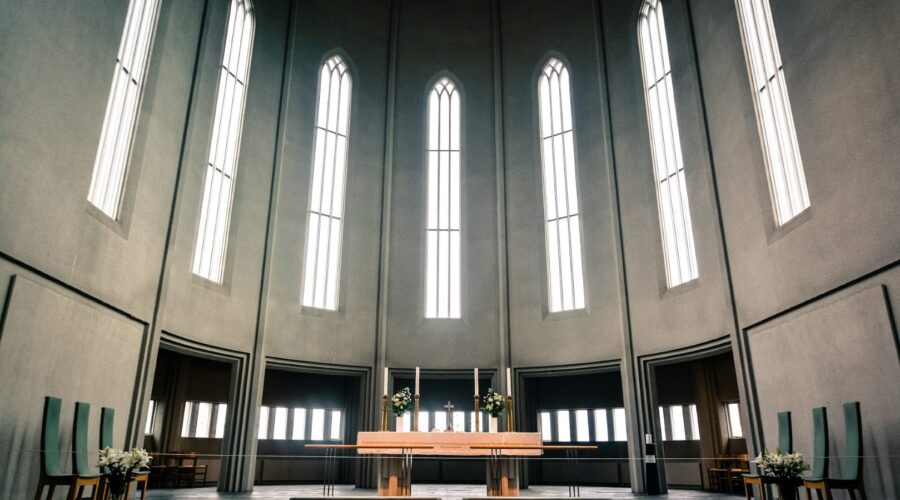
Discover the Essence of Faith Bible Church: A Comprehensive Guide
Embark on a journey of faith and community as we explore the depths of Faith Bible Church. This comprehensive guide will illuminate its history, beliefs, ministries, and impact. Whether you’re a seasoned member or a curious seeker, delve into this profound exploration of a church that embodies a vibrant and transformative faith experience.
History and Mission
The Genesis of Faith Bible Church
Faith Bible Church traces its roots to 1977 in a small North Carolina town. Inspired by a desire to establish a Bible-centered congregation, a group of dedicated believers gathered to worship and study the Word of God. Over the years, the church experienced exponential growth, expanding to multiple locations and captivating hearts across the region.
Unwavering Commitment to Scripture
At Faith Bible Church, the Bible reigns supreme as the infallible and authoritative guide for faith and practice. The church adheres to a literal interpretation of Scripture, believing that every word holds divine truth and relevance for individuals and the community.
Core Beliefs
The Cornerstones of Faith
Faith Bible Church stands firmly on a foundation of biblical truths that shape its doctrines and practices:
- The Trinity: God exists as three distinct persons: Father, Son, and Holy Spirit, united in one divine essence.
- Jesus Christ: Jesus is the Son of God, fully God and fully man, who came to earth to redeem humanity through His sacrificial death and glorious resurrection.
- Salvation by Grace: Salvation is a free gift of God, granted through faith in the finished work of Jesus Christ, not through personal merit or works.
- The Holy Spirit: The Holy Spirit indwells believers, empowering them for spiritual growth, witness, and service.
- The Second Coming of Christ: Jesus Christ will return bodily to earth to judge the living and the dead, establishing His eternal kingdom.
Ministries and Outreach
Transforming Lives Through Service
Faith Bible Church is a vibrant hub of ministries that cater to people of all ages and backgrounds. These ministries extend the church’s mission beyond its walls, reaching out to the community and beyond:
- Children’s Ministry: Nurturing young hearts through age-appropriate Bible teaching, games, and activities.
- Youth Ministry: Equipping teenagers for a life of faith, providing discipleship, mentoring, and mission opportunities.
- Adult Ministries: Offering Bible studies, small groups, and fellowship events tailored to various life stages and interests.
- Missions: Supporting missionaries and ministries around the world, spreading the gospel and making a tangible impact.
- Community Outreach: Engaging with the local community through service projects, donations, and partnerships to demonstrate Christ’s love.
Impact and Legacy
A Force for Good in the World
The influence of Faith Bible Church extends far beyond its immediate congregation. Its unwavering commitment to biblical truth and practical service has left an enduring mark on the community and beyond:
- Spiritual Transformation: Countless lives have been transformed through the church’s teaching and discipleship programs, fostering a deep understanding of God’s Word and a vibrant relationship with Jesus Christ.
- Community Impact: Faith Bible Church has been a catalyst for positive change in the local community, addressing social issues, providing support services, and partnering with local organizations to make a lasting impact.
- Global Missions: The church’s commitment to missions has reached nations across the globe, supporting indigenous churches, training leaders, and sharing the message of salvation with the unreached.
Conclusion
Faith Bible Church is more than just a building or a religious institution; it is a vibrant community of believers united by their shared faith in Jesus Christ and their commitment to living out His teachings. Through its unwavering adherence to Scripture, dynamic ministries, and transformative impact, Faith Bible Church continues to be a beacon of hope and a force for good in the world. May this exploration inspire you to connect with a church that nourishes your faith and empowers you to make a lasting difference.
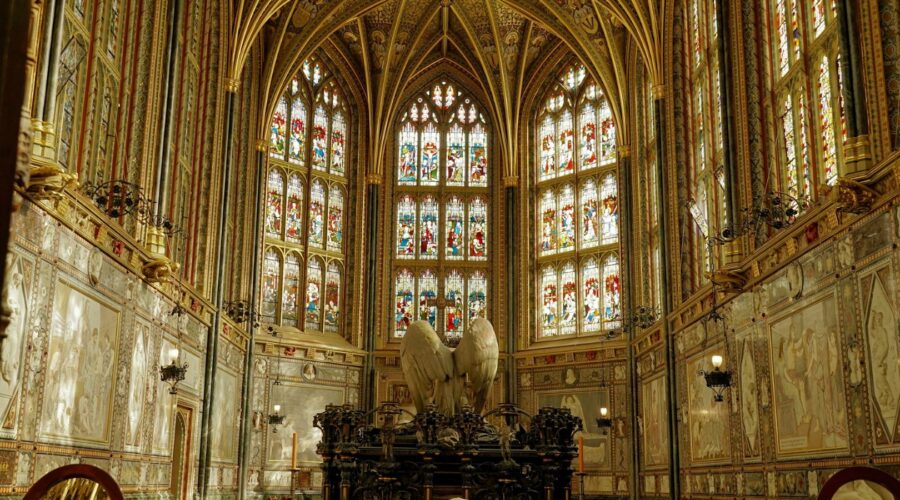
The Hills Church: A Comprehensive Guide and Overview
The Hills Church, a vibrant and influential megachurch based in Southern California, has captured the attention of millions worldwide. With its captivating worship services, dynamic leadership, and extensive community outreach, the church has become a model of contemporary Christianity.
History and Mission
Founded in 1983 by Pastors Brian and Bobbie Houston, The Hills Church initially met in a high school auditorium in the San Fernando Valley. Over the years, it has expanded to multiple campuses throughout California and has established a global presence through its online platform.
The Hills Church’s mission is to “make Jesus famous” by creating a community where people can experience his love, grow in their faith, and live out their purpose.
Worship Services
The Hills Church is renowned for its electrifying worship services, which feature contemporary music, powerful preaching, and an atmosphere of unity and inspiration.
Worship Leadership
The Hills Church’s worship team, led by worship pastor Joel Houston, is known for its original songs and dynamic stage presence. Worship songs such as “Oceans” have become global anthems, inspiring millions.
Sermons
Pastor Brian Houston and other leaders deliver thought-provoking and practical sermons that address contemporary issues, discipleship, and spiritual growth.
Community Involvement
The Hills Church actively engages in its local communities and supports numerous initiatives worldwide.
Local Outreach
Through the Hills Care Foundation, the church provides assistance to those in need, including food distribution programs, financial aid, and support for the homeless.
Global Missions
The Hills Church supports missionaries in various countries and is heavily involved in relief efforts and development projects around the globe.
Leadership
The Hills Church is led by a team of pastors and elders who share a vision for reaching the lost and building a vibrant, purpose-filled community.
Brian Houston
As the founding and senior pastor, Brian Houston is a respected leader known for his visionary leadership and passion for evangelism.
Bobbie Houston
Co-founder and senior pastor, Bobbie Houston, is a sought-after speaker and author with a special focus on women’s ministries and leadership development.
Campuses and Online Presence
The Hills Church has multiple campuses located throughout California, including locations in Los Angeles, San Diego, San Jose, and Sacramento.
In addition, the church has a strong online presence through its website, social media platforms, and streaming services, reaching millions globally.
FAQ
What are the Hills Church’s beliefs?
- The Bible is the infallible Word of God.
- Jesus Christ is the only way to salvation.
- The Holy Spirit empowers believers to live a victorious life.
- The Church is the body of Christ and a place of community and growth.
When are the worship services?
The Hills Church offers multiple worship services at various times throughout the week. Check the website for specific timings and locations.
How can I get involved?
There are various ways to get involved at The Hills Church, including volunteering, joining a small group, or participating in outreach programs.
Conclusion
The Hills Church is a vibrant and thriving community of believers who are passionate about making a difference in the world. Through its dynamic worship services, extensive community involvement, and global outreach, the church continues to inspire and empower millions.

Discover the Evolving Landscape of Bridge Churches: A Comprehensive Guide
Introduction
In the tapestry of contemporary Christianity, bridge churches stand out as a distinctive and growing phenomenon. They are characterized by their intentional focus on bridging the gap between traditional and contemporary worship styles, reaching out to diverse communities, and fostering a sense of belonging. This comprehensive guide will delve into the multifaceted world of bridge churches, exploring their origins, core principles, and impact on the religious landscape.
Origins and History
Pioneers of Convergence
The origins of bridge churches can be traced back to the late 20th century, particularly in the United States. Leaders like Andy Stanley and Craig Groeschel emerged as pioneers of this movement, recognizing the need for a more inclusive and welcoming approach to worship. They sought to create spaces where individuals from different backgrounds could connect and experience the transformative power of faith.
Convergence of Worship Styles
A defining characteristic of bridge churches is their embrace of a blend of traditional and contemporary worship styles. They seamlessly incorporate elements of both approaches, catering to a wide range of preferences. This convergence allows for a more accessible and engaging experience, appealing to those who appreciate both reverence and spontaneity.
Core Principles
Inclusivity and Diversity
Bridge churches prioritize inclusivity and diversity as fundamental pillars of their identity. They actively seek to create welcoming and affirming spaces for individuals regardless of their age, race, gender, or socioeconomic status. By emphasizing the shared humanity and common bond of faith, they foster a sense of belonging and unity.
Engaging Worship
Engaging worship lies at the heart of bridge churches. They recognize the importance of creating an atmosphere that fosters both spiritual growth and personal connection. This is achieved through a blend of traditional and contemporary elements, including music, liturgy, and multimedia. The emphasis is on creating a dynamic and immersive experience that resonates with people of all ages and backgrounds.
Relational Community
Bridge churches place a high value on building strong relational communities. They recognize the vital role of small groups, ministries, and outreach programs in fostering connections and providing support. By cultivating a sense of community, they create an environment where individuals can form meaningful relationships, grow in their faith, and make a difference in the world.
Impact and Challenges
Growth and Expansion
The bridge church movement has experienced significant growth in recent years, with numerous churches adopting this approach to ministry. They have gained popularity due to their ability to connect with multiple generations and create welcoming environments for diverse communities.
Integration and Balance
One of the ongoing challenges for bridge churches is finding the right balance between blending traditional and contemporary elements. They must carefully navigate the tension between preserving familiar practices and embracing innovative approaches to avoid alienating or disengaging members.
Authenticity and Authenticity
Bridge churches also face the challenge of maintaining authenticity while appealing to a broad audience. They must ensure that their blended approach doesn’t come across as merely a marketing strategy but is rooted in genuine conviction and a desire to create an inclusive and engaging worship experience.
Tips for Finding a Bridge Church
If you’re seeking a bridge church that aligns with your beliefs and values, consider the following tips:
- Research potential churches online and read reviews to gain insights into their culture and approach.
- Attend guest services or special events to experience the worship style and meet members firsthand.
- Inquire about small group opportunities and community involvement programs.
- Look for churches that prioritize diversity and inclusivity in their leadership and congregation.
- Consider your personal preferences for worship style and the overall atmosphere of the church.
Conclusion
Bridge churches are a dynamic and growing force in the religious landscape, offering a unique blend of traditional and contemporary worship styles, a focus on inclusivity and diversity, and a commitment to fostering vibrant relational communities. They have made a significant impact on the way individuals experience faith and connect with others. As the bridge church movement continues to evolve, it has the potential to further shape the future of Christianity by creating welcoming and engaging spaces where people from all walks of life can find spiritual growth, connection, and purpose.
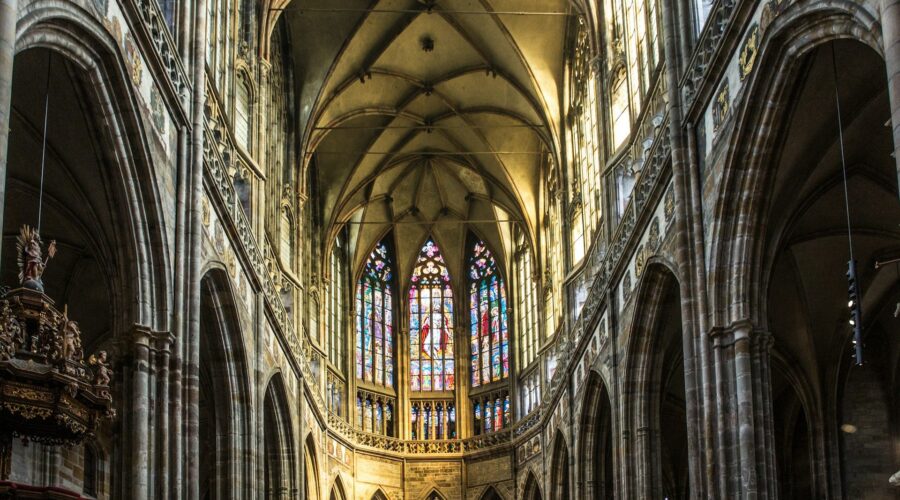
Discover Bethel Lutheran Church: A Haven of Faith, Community, and Service
About Bethel Lutheran Church
Nestled in the heart of vibrant [City Name], Bethel Lutheran Church stands as a beacon of faith, community, and service for all who seek. Founded in [Year], our church has been a cornerstone of the neighborhood for over [Number] years, providing spiritual guidance, fellowship, and outreach to generations of families.
Rooted in the Lutheran tradition, Bethel Lutheran Church embraces the core principles of grace, forgiveness, and love. We believe that all people are created in the image of God and deserve to be treated with dignity and respect.
Our Mission
Reaching out to Our Community
- Provide a welcoming and inclusive environment for people of all ages, backgrounds, and abilities.
- Offer a variety of worship services, Bible studies, and spiritual growth opportunities.
- Engage in community outreach programs that address the needs of the surrounding area.
Nurturing Faith and Growth
- Preach and teach the Word of God in a clear and engaging manner.
- Foster a sense of community and support among our members.
- Encourage personal spiritual growth and development through prayer, study, and service.
Our Beliefs
Core Teachings
- The Trinity: God is one being in three persons: the Father, the Son (Jesus Christ), and the Holy Spirit.
- Scripture: The Bible is the inspired and authoritative Word of God.
- Grace: Salvation is a free gift from God, received through faith in Jesus Christ.
- Forgiveness: God forgives sins through the sacrifice of Jesus Christ.
Key Practices
- Worship: We gather for worship services that include music, prayer, Scripture readings, and communion.
- Baptism: We baptize infants and adults as a sign of their inclusion in the body of Christ.
- Holy Communion: We celebrate the Lord’s Supper as a remembrance of Jesus’ sacrifice and as a way to experience his presence.
Our Services
Worship Services
- Sunday Worship: 9:00 AM (Traditional) and 11:00 AM (Contemporary)
- Midweek Service: Wednesdays at 7:00 PM (during Lent and Advent)
Education Programs
- Sunday School: For children and youth of all ages.
- Adult Education: Bible studies, workshops, and discussion groups.
Fellowship Opportunities
- Coffee Hour: After each Sunday worship service.
- Social Events: Monthly potlucks, game nights, and movie nights.
Contact Us
To learn more about Bethel Lutheran Church or to schedule a visit, please contact us at:
- [email protected]
- (555) 123-4567
- 123 Main Street, [City Name], [State] [Zip Code]
Additional Resources
Resource Description Church Website Visit our website for detailed information, event listings, and online giving. Facebook Page Connect with us on Facebook for updates, photos, and announcements. YouTube Channel Watch our sermons and worship services online. 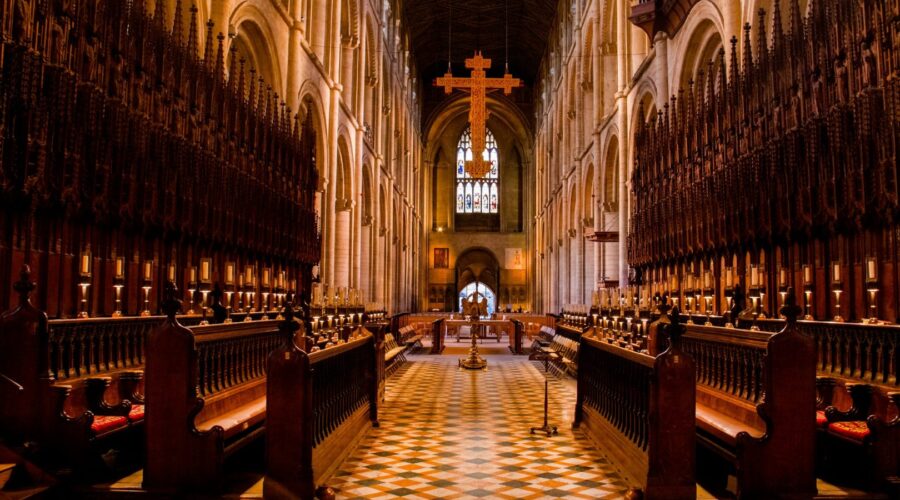
St. Anthony of Padua: A Saint of Miracles, Lost Things, and the Poor
Introduction
St. Anthony of Padua, also known as Anthony the Wonder-Worker, is one of the most beloved and popular saints in the Catholic Church. He is known for his powerful intercession, especially in finding lost things, healing the sick, and helping the poor. This blog post will delve into the life, teachings, and miracles of this extraordinary saint.
Early Life and Vocation
Anthony was born Fernando Martins de Bulhões in Lisbon, Portugal, in 1195. He received a privileged education and initially joined the Augustinian order. However, after encountering the Franciscan friars in Coimbra, he was deeply inspired by their simplicity and missionary zeal. In 1220, he joined the Franciscan Order and took the name Anthony.
Preaching and Missionary Work
Anthony quickly became known for his eloquent preaching and his ability to connect with people from all walks of life. He traveled throughout Europe, preaching the Gospel and bringing about numerous conversions. Anthony’s sermons were filled with vivid imagery, practical advice, and a deep love for God and neighbor.
Miracles and Intercession
Anthony is renowned for the many miracles attributed to his intercession. Among the most famous is the miracle of the fishes, where he preached to a crowd of fish and they listened attentively to his words. Anthony is also known for helping people find lost items, such as keys, wallets, and even stolen goods.
Devotion to the Poor
Anthony had a deep compassion for the poor and marginalized. He saw God’s presence in the least of his brethren and dedicated himself to their service. Anthony established soup kitchens, distributed food and clothing, and advocated for social justice.
Death and Legacy
Anthony died in Padua, Italy, on June 13, 1231, at the age of 36. He was canonized a saint by Pope Gregory IX only one year later, a testament to his widespread devotion. The Basilica of Sant’Antonio in Padua houses his relics and is a popular pilgrimage site.
Patronages
St. Anthony of Padua is the patron saint of many causes, including:
* Lost Things
* Travelers
* Pregnant Women
* The Poor
* Barren Women
* Animals
* Portugal
* BrazilPrayer to St. Anthony
Dear St. Anthony,
You who are known for your miraculous intercession,
I turn to you today with a heavy heart.
I have lost [name of lost item] and am filled with worry.
Please help me to find what I have lost, so that I may be reunited with it.
I also pray for your intercession on behalf of all who are suffering.
Comfort the sick, provide for the needy, and bring peace to the troubled.
Amen.Conclusion
St. Anthony of Padua remains a beloved and influential figure in the Catholic Church today. His life and teachings inspire us to serve the poor, to trust in God’s providence, and to seek his intercession in our daily lives. May we imitate his example of faith, compassion, and unwavering hope.

Unveiling the Grandeur of the Basilica of the National Shrine of the Immaculate Conception
A Majestic Beacon of Faith
Nestled in the heart of Washington D.C., the Basilica of the National Shrine of the Immaculate Conception stands as a magnificent testament to the Catholic faith. This towering sanctuary, the largest Catholic church in North America, captivates visitors with its architectural grandeur and spiritual significance.
History
Conception and Construction
The seed for this national shrine was planted in 1846, when Bishop John Hughes envisioned a monumental church in honor of the Immaculate Conception. However, it wasn’t until 1920 that Archbishop James Gibbons officially dedicated the site, and construction commenced in 1924.
Dedication and Recognition
The basilica’s grand opening ceremony took place on December 8, 1959, the feast of the Immaculate Conception. In 1969, Pope Paul VI elevated the shrine to the status of a minor basilica. Today, it remains an active parish and a popular destination for pilgrims and tourists alike.
Architecture
Byzantine-Romanesque Style
The basilica’s design draws inspiration from both Byzantine and Romanesque architectural traditions. Its massive facade features a central archway adorned with intricate carvings, while the interior boasts soaring vaults supported by grand marble columns.
Mosaics and Frescoes
The basilica’s interior is adorned with over 100,000 square feet of mosaics depicting biblical scenes, saints, and symbols. The most notable mosaic, “Christ in Majesty,” adorns the sanctuary’s apse. Additionally, the nave features beautiful frescoes by renowned artist William Van Benthuysen.
Significance
National Shrine
The basilica serves as the national shrine of the United States, a testament to the Catholic faith’s strong presence in the country. It is visited by millions of pilgrims and tourists each year, who come to pray, experience the grandeur of the architecture, and learn more about the history and theology of the Catholic Church.
Musical Heritage
The basilica has a rich musical heritage. Its organ, built by Casavant Frères of Canada, is one of the largest in the world. The sanctuary also features a 100-voice choir, which performs regularly during Masses and other liturgical celebrations.
Pilgrimage
Visiting the Basilica
Pilgrims and tourists alike are welcome to visit the basilica. Mass is celebrated daily, and guided tours are available. Special events, such as concerts and lectures, are also held throughout the year.
Admission Information
Admission to the basilica is free. Guided tours are available for a nominal fee. For more information on hours and tours, visit the basilica’s website: www.nationalshrine.org.
Tips for Visitors
Dress Code
When visiting the basilica, it is recommended to dress respectfully, according to Catholic liturgical norms.
Photography
Photography is permitted within the basilica, but flash photography is not allowed.
Accessibility
The basilica is accessible to visitors with disabilities. Wheelchairs are available at the main entrance.
Language
Masses and tours are available in multiple languages, including English, Spanish, and French. Check the basilica’s website for current schedules.
Conclusion
The Basilica of the National Shrine of the Immaculate Conception is a masterpiece of architecture and a profound expression of faith. Its grandeur and significance make it a must-see destination for anyone visiting Washington D.C. Whether you are seeking spiritual inspiration or simply appreciating the beauty of the built environment, this basilica is sure to leave a lasting impression.
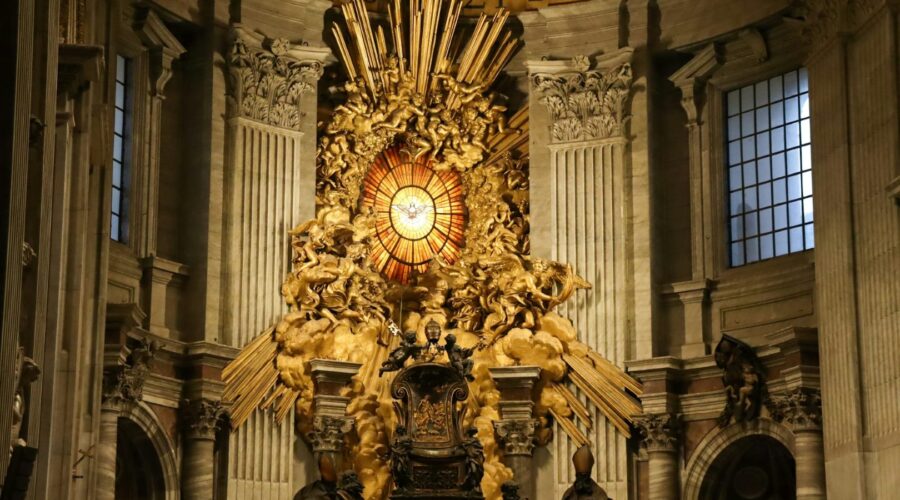
Unlock Spiritual Fulfillment and Community: Find Redeem Church Near You
Introduction
Embarking on a spiritual journey or seeking a vibrant community to support your faith? Redeem Church stands ready to guide and connect you. With locations in numerous areas, finding a Redeem Church near you is effortless. Explore this comprehensive guide to discover the benefits, programs, and services offered by this transformative church.
Benefits of Attending Redeem Church
Personal Growth and Transformation
Redeem Church fosters a nurturing environment where individuals can deepen their faith, embark on a quest for personal growth, and build resilient spirits.
Community and Belonging
Become part of a welcoming and supportive community that values connection, love, and shared experiences. Redeem Church offers a variety of groups and events to foster meaningful relationships.
Biblical Teaching and Worship
Engage with insightful sermons and engaging worship that delve into the truths of the Bible and ignite a deeper understanding of God’s love and grace.
Programs and Services Offered
Redeem Church offers a diverse range of programs and services to cater to the spiritual needs of individuals at every stage of their faith journey:
Small Groups
Join a small group for intimate discussions, prayer, and fellowship. These groups foster accountability and provide a safe space for spiritual growth.
Leadership Development
Develop your leadership abilities through tailored programs and mentorship opportunities designed to empower you to serve your community and make a meaningful impact.
Missions and Outreach
Participate in mission trips and local outreach initiatives that allow you to extend God’s love and make a tangible difference in the world.
Children and Youth Ministries
Redeem Church provides dedicated programs for children and youth, instilling biblical values and fostering their spiritual development in a fun and engaging environment.
Finding a Redeem Church Near You
Locating a Redeem Church near you is a breeze:
- Online Directory: Visit the Redeem Church website and utilize the convenient online directory to find a church in your desired area.
- Social Media: Follow Redeem Church on social media platforms like Facebook and Instagram to stay informed about upcoming events and discover the nearest location.
- Google Search: Conduct a Google search using keywords like “Redeem Church near me” or “Redeem Church in [your city or neighborhood]” to locate churches in your vicinity.
Conclusion
Redeem Church offers a transformative and fulfilling spiritual experience. Whether you seek personal growth, meaningful connection, or a deeper understanding of your faith, this vibrant church invites you to join its community and embark on a journey of spiritual discovery. Finding a Redeem Church near you is simple and convenient, allowing you to easily access its programs, services, and the transformative power of its message.
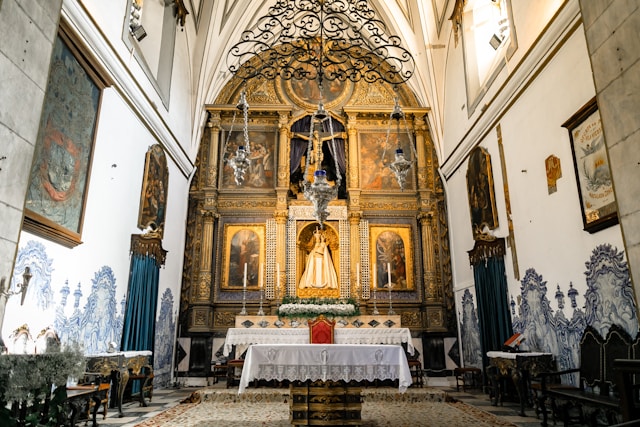
Discover the Church of God in Christ: A Haven of Faith and Fellowship
Introduction
The Church of God in Christ (COGIC) is a predominantly African American Pentecostal denomination with a long and rich history. Founded in Arkansas in 1897, COGIC has grown into a vibrant and influential global community of over 6 million members, with congregations in all 50 states of the USA and over 60 other countries.
Core Beliefs
The Trinity
COGIC adheres to the doctrine of the Holy Trinity, believing in the existence of God the Father, Jesus the Son, and the Holy Spirit as one unified Godhead.
The Bible
The Bible is considered the infallible and authoritative word of God, providing guidance and instruction for all aspects of life.
Salvation
Salvation is achieved through faith in Jesus Christ as the Savior and repentance of sins. It is a process that involves regeneration, justification, and sanctification.
Holy Spirit Baptism
COGIC emphasizes the importance of being baptized in the Holy Spirit, which is manifested by speaking in tongues and other spiritual gifts.
Eschatology
COGIC believes in the imminent return of Jesus Christ and the establishment of His kingdom on earth.
Worship and Practices
Worship Services
Worship services are lively and engaging, characterized by passionate singing, expressive preaching, and exuberant dancing. Music plays a central role, incorporating traditional hymns, contemporary gospel songs, and rhythmic African-American spirituals.
Prayer and Fasting
Prayer is a vital aspect of COGIC, with members encouraged to pray regularly and participate in corporate prayer meetings. Fasting is also practiced as a means of spiritual renewal and seeking God’s favor.
Evangelism and Discipleship
COGIC is committed to spreading the gospel and making disciples. Members engage in outreach activities, evangelistic crusades, and mentorship programs to share their faith with others.
Governance and Structure
Hierarchy
COGIC is governed by a hierarchical structure led by a Presiding Bishop, who serves as the spiritual and administrative head of the denomination.
General Assembly
The General Assembly is the highest governing body, consisting of delegates elected from local congregations. It meets annually to set policy, elect officers, and provide direction for the entire denomination.
Jurisdictions
COGIC is divided into jurisdictions, each led by a jurisdictional prelate. Jurisdictions are further subdivided into districts and local congregations.
Social Impact
Community Outreach
COGIC churches are deeply involved in their communities, providing a range of social services such as food pantries, homeless shelters, job training programs, and youth mentorship.
Education
COGIC has established numerous educational institutions, including universities, colleges, and Bible colleges, to provide members and the wider community with access to higher education.
Health and Wellness
Through initiatives such as health fairs and wellness programs, COGIC promotes healthy lifestyles and provides medical assistance to those in need.
Notable Individuals
Bishop Charles Harrison Mason
Considered the “Father of COGIC,” Mason founded the church in 1897 and served as its first Presiding Bishop for over 40 years.
Bishop G. T. Haywood
A charismatic preacher and leader, Haywood succeeded Mason as Presiding Bishop in 1941 and oversaw the denomination’s rapid growth and expansion.
Bishop J. O. Patterson
Patterson served as Presiding Bishop from 1968 to 2011, leading COGIC through a period of significant social and cultural change.
Conclusion
The Church of God in Christ is a vibrant and dynamic denomination that has had a profound impact on the lives of millions of people around the world. Its unwavering faith in Jesus Christ, commitment to serving others, and rich traditions continue to inspire and uplift its members. As a beacon of hope and a hub of community, COGIC remains a powerful force in the global Christian landscape.
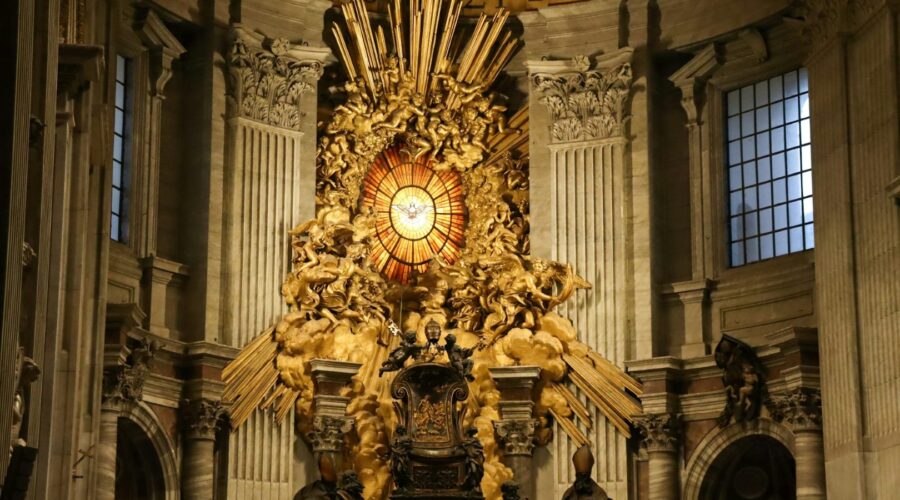
Explore the Beliefs, Practices, and Impact of Southern Baptists
Within the vast landscape of Christianity, the Southern Baptist Convention stands out as one of the largest and most influential Protestant denominations. With its roots firmly planted in the American South, Southern Baptists have played a pivotal role in shaping the religious and cultural landscape of the United States and beyond. This comprehensive guide delves into the core beliefs, practices, and impact of Southern Baptists, providing valuable insights for those seeking deeper knowledge about this prominent religious group.
History and Formation
The genesis of the Southern Baptist Convention lies in the early 19th century amid growing tensions between pro- and anti-missionary factions within the Baptist denomination. In 1845, a group of delegates from Southern Baptist churches assembled in Augusta, Georgia, to form their own convention, citing differences in theology and mission strategy. The newly formed Southern Baptist Convention, distinct from the predominantly Northern Baptist Convention, emphasized the importance of foreign missions, Christian education, and strict adherence to biblical authority.
Beliefs
The Southern Baptist faith rests on a solid foundation of biblical authority and traditional Baptist principles. At the core of their beliefs lies the Solae principle, which encompasses:
- Sola Scriptura: The belief that the Bible alone is the supreme and infallible authority for faith and practice.
- Sola Fide: The belief that salvation is solely through faith in Jesus Christ.
- Sola Gratia: The belief that salvation is a gift from God and cannot be earned through human works.
Southern Baptists also emphasize the Trinity, the divinity of Christ, the atoning sacrifice of Jesus on the cross, and the resurrection. They hold to a conservative interpretation of Scripture, believing that it is without error in its original form.
Practices
The practices of Southern Baptists are deeply rooted in their beliefs. Central to their worship is the congregational singing of hymns, the preaching of sermons expounding on biblical texts, and the observance of ordinances such as baptism and the Lord’s Supper. Southern Baptists typically gather for worship in local churches, which are self-governing and autonomous.
Baptism
Baptism, as practiced by Southern Baptists, is an outward expression of an inward faith commitment. It is a symbol of dying to sin and being raised to new life in Christ. Southern Baptists practice believer’s baptism, meaning that only those who have made a personal profession of faith are eligible to be baptized.
Communion
The Lord’s Supper, also known as communion, is a sacred ordinance that commemorates Jesus’ sacrifice on the cross. Southern Baptists believe that the bread and wine represent the body and blood of Christ and that partaking in communion is a means of expressing unity with fellow believers.
Impact
Throughout their history, Southern Baptists have had a significant impact on American society. Their fervent support for missions has led to the establishment of churches and educational institutions around the world. They have also been instrumental in the formation of several prominent Christian organizations, including the Southern Baptist Theological Seminary and the International Mission Board.
Education
Southern Baptists place a high value on Christian education. They operate a network of colleges, universities, and seminaries that provide theological training and prepare students for various ministerial roles. Notable institutions include:
- Southern Baptist Theological Seminary
- Samford University
- Southwestern Baptist Theological Seminary
Missions
Missionary work is a cornerstone of Southern Baptist identity. Through the International Mission Board, they support missionaries who serve in over 150 countries. Southern Baptists believe that sharing the gospel of Jesus Christ is an integral part of their faith.
Social Issues
Southern Baptists have historically taken conservative stances on social issues such as abortion, same-sex marriage, and the role of women in ministry. These positions have often sparked controversy and debate, both within the denomination and in broader society.
Conclusion
The Southern Baptist Convention, a prominent Protestant denomination with a rich history, holds steadfast to its core beliefs, including biblical authority, salvation through faith, and the importance of missions. Their practices, such as baptism and communion, reflect a commitment to biblical principles. Through their educational institutions, missionary endeavors, and social activism, Southern Baptists have had a far-reaching impact on American society and beyond. Understanding their beliefs, practices, and influence provides valuable insights into the religious landscape of the United States and its global outreach.